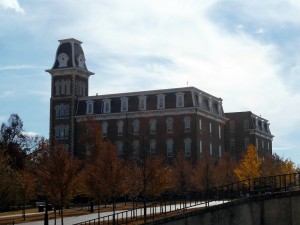Fayetteville City Council Ignores Voters, Passes Unpopular Ordinance
FOR IMMEDIATE RELEASE
Wednesday, August 20, 2014
At 3:20 AM Wednesday morning, the Fayetteville City Council passed the controversial Chapter 119: Civil Rights Administration ordinance creating special protections based on sexual-orientation and gender identity. The vote was 6-to-2, with aldermen Martin Schoppmeyer and Justin Tennant voting against the measure.
Family Council President Jerry Cox released a statement, saying, “This is another example of government officials thinking they know better than their citizens. The People of Fayetteville turned out in droves to oppose this proposal. Alderman Tennant suggested referring the ordinance for a popular vote this November to let the people decide for themselves if this would be good for Fayetteville. Other members of the council said this ordinance is not the kind of thing voters should get to decide. I wonder what makes them think citizens are qualified to vote for lawmakers, but not for laws.”
Cox said even with last-minute amendments offered by the council, the ordinance is still bad. “You’re talking about a proposal that by nature expands government and elevates the rights of some citizens over others. You can’t amend something that flawed enough to make it acceptable. Businesses and people of faith still face the threat of criminal prosecution under this ordinance, and taxpayers are still bound to see their local government grow. Regardless of the intentions of the city council and City Attorney’s Office, this proposal is a lawsuit waiting to happen, and the courts will be the ones who have the final say on how it is interpreted.”
Cox said he is grateful to aldermen Schoppmeyer and Tennant who voted against the proposal. “They recognized how flawed this ordinance is, and they stood up for their constituents. That takes courage. I appreciate their actions, and I am sure a lot of other people do, too.”
Cox said his group will continue to monitor the situation in Fayetteville and any consequences that arise as a result of Chapter 119. “The ordinance is extremely unpopular; it infringes First Amendment constitutional rights; it might even conflict with state law; and it’s going to open people in Fayetteville to the possibility of criminal prosecution. With all of that in mind, I imagine some Fayetteville residents are going to try to repeal the ordinance, and others will want to file a lawsuit to clarify its constitutionality. One thing is certain: This fight is far from over.”
###

 I have been told by friends in Northwest Arkansas that the Fayetteville City Council is receiving 300 emails a day over its Proposed Chapter 119 ordinance. That’s great news!
I have been told by friends in Northwest Arkansas that the Fayetteville City Council is receiving 300 emails a day over its Proposed Chapter 119 ordinance. That’s great news!